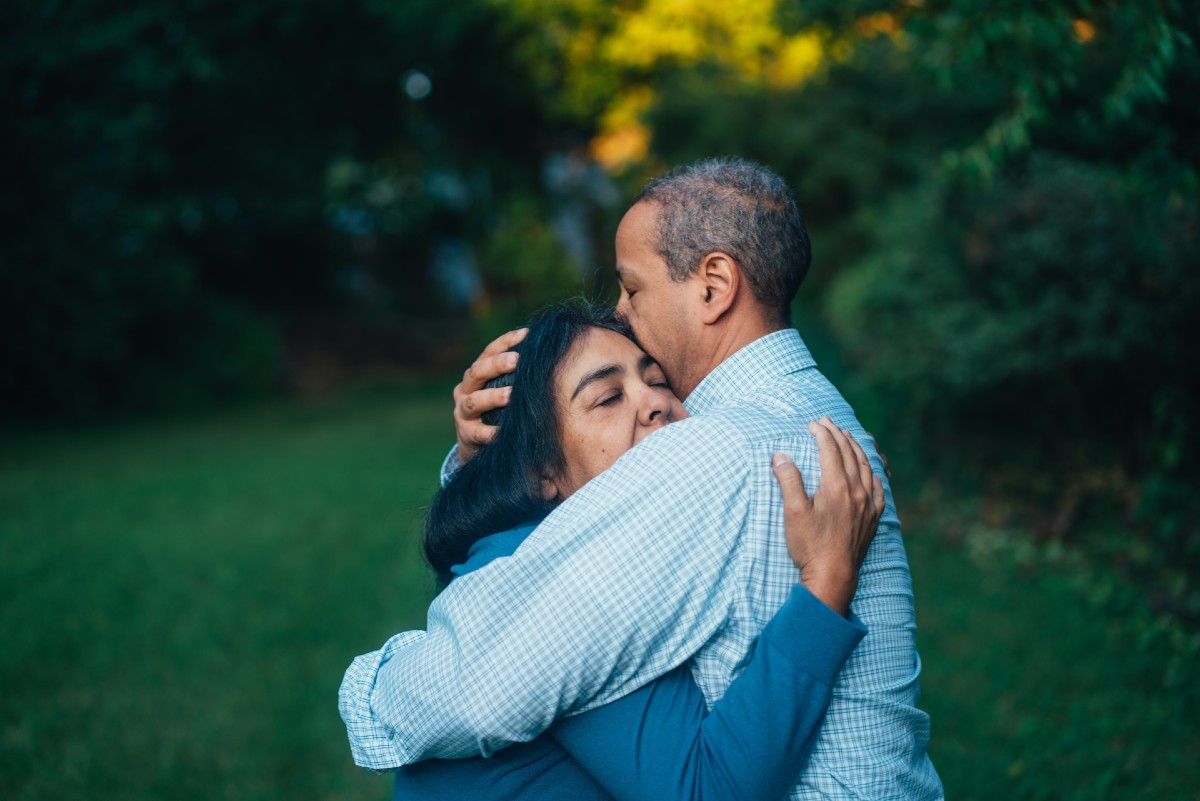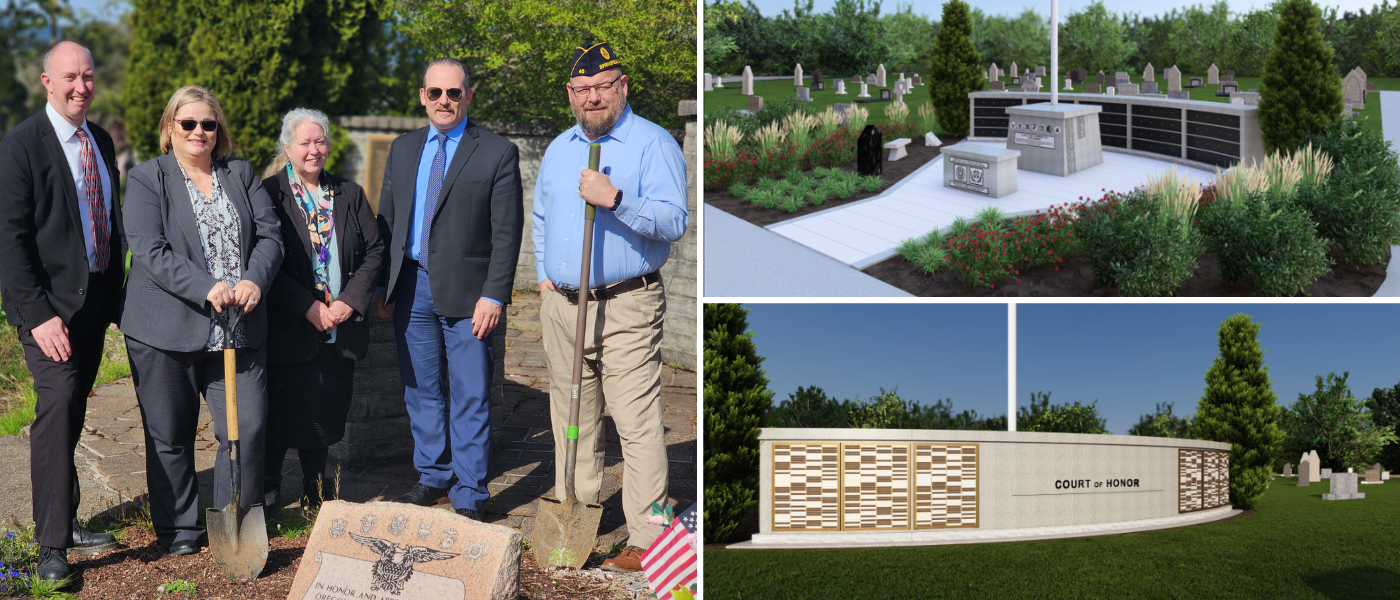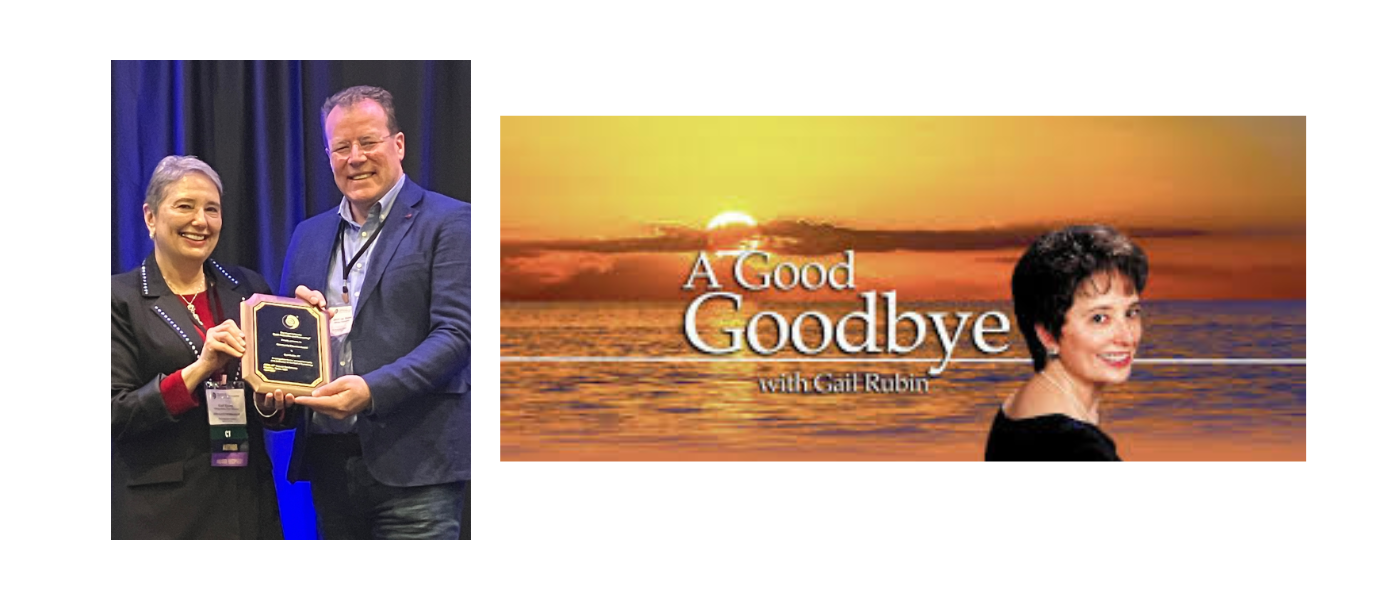The Unexpected Value of Slowing Down the Death-Planning Process for Families
Many funeral homes pride themselves on how many arrangements they can get in and out the door in a given business day. Efficiency and high volume sales are considered important and necessary for funeral business operations. And for many families, a quick death planning experience is helpful. However, with the onset of distanced arranging in the pandemic, and the development of new forms of disposition like natural organic reduction, professionals across the space are learning that speed may not always be necessary, or helpful for every single death planning family. According to some professionals in the field, slowing down the death planning process for families has had some unprecedented benefits.
Seeing and Meeting The Evolving Needs of Families
During the Covid-19 pandemic everything changed for the funeral profession. Funeral services were delayed, funeral homes were at max capacity, and we had to learn how to help grieving families remotely while social distancing. In many ways the pandemic forced the funeral profession into adapting many years of technology and progress overnight, which has changed the way that we serve families moving forward. One of the biggest challenges and changes funeral professionals had to make was learning how to help families arrange and plan funeral services and memorials from afar. Given these new avenues of funeral planning, observant funeral professionals noticed that families began making different and unexpected choices.
Timothy McLoone is a Licensed Funeral Director & Certified Celebrant at William R. May Funeral Home, in Glenside, PA. During the Covid-19 pandemic Tim began to realize that not only were families making different choices than he expected, but were taking longer to make them. In an interview with the Deathcare Decoded podcast Tim explains that,
“Something that I recognized and witnessed definitively during the pandemic, as the profession had to make a quick shift to online arrangements and doing things more remotely, was that today’s consumer in funeral service finds value in being allowed more time to make decisions. Normally we would walk into a selection room with a family and show the family a dozen or more caskets while prompting them to select one (and we would also stand next to them while they selected one– and would maybe even steer them in the direction of one or two models that are commonly chosen). But during the pandemic we would send a packet of those options out to families and let them sit on the decisions for as long as they needed, and sometimes it would be a long time, maybe even overnight, before we got decisions back about certain things. There was proof that more families want and need that time. Families want to be met where they are. I think in funeral service, historically, we can sometimes blur the line between offering gentle direction and making decisions for people. But in the face of the pandemic, under the face of doing things remotely under some of the worst circumstances, if not the worst circumstances, these families could have ever seen, we saw people making different choices, often higher-end choices. When we give people those options and we give them the carte blanche and the freedom to make decisions on and in their own time, it totally changes the way that we can think about doing funeral arrangements.”
Similarly, Sandra Walker, Vice President of Strategic Business at Fairmount Memorial Association in Washington State revealed in an interview with Deathcare Decoded how beginning to offer families more time to make decisions during Covid-19 ended up relieving sales pressure and lead to better decision making:
“When you send remote families options and information, they are going to review it on their own time, at their own pace, and at a time in which they are ready to make those decisions. So, maybe previously when they would come into the funeral home, families would have the mentality of ‘I just want to get this done so that I can go grieve.’ But now, when we give families the option of more time, they aren’t pressured. I really like that, because it slows the arranging tempo down, and as funeral directors, we only need to be in a hurry if the family is in a hurry. […] We always encourage families to slow the tempo down unless there is a reason to speed it up. I believe that when you give families the gift of time it allows them to make the decisions that are best for themselves.”
From insights like Tim’s and Sandra’s we can learn that an unexpected upside of the arranging challenges presented by the pandemic was an opportunity to better meet some families exactly where they were and are in their grieving process, by slowing down death planning. It turns out, some families benefit from having a little extra time to make decisions and to see options with fresh eyes. This is a lesson that we can take with us moving forward into the years beyond social distancing.
Natural Organic Reduction and Slowing Down Death Planning
One of the biggest innovations that has swept the deathcare space in the past two years is the legalization of natural organic reduction (body composting). Companies like Recompose and Return Home have hit the ground running with this new, eco-friendly disposition method. Depending on the specifics of each company’s techniques, the NOR process can take upwards of 60 days before families receive their loved ones back in the form of fertile soil. This necessarily means that families who choose NOR have a lengthier span of time between the death of their loved one and laying that loved one to rest.
According to some deathcare professionals in the NOR field, giving families that time to build rituals, and cultivate relationships with the deathcare professionals taking care of their loved ones has been beneficial. Brie Smith, Services Director at Return Home, helps families through the process of choosing Natural Organic Reduction for their loved ones’ disposition, and explains how slowing down the death planning process for grieving families has been a valuable process:
“I think that because our process is 60 days minimum […] I’m seeing people be able to take their time because we are taking our time. [The Natural Organic Reduction] process itself is long enough that our families have been moving more slowly than what I’m used to in traditional funeral services. I used to take a great deal of pride in turning people over quickly because I thought that’s what the family needed to help facilitate their grief. I thought that the more quick and efficient I was the better I was doing for families and I’m learning that that’s not at all the case. 60 days can sound kind of intimidating but it’s incredible to see people slow down and actually process their grief in a way that they feel good about their chosen disposition method. That’s something that I’ve been previously unfamiliar with. Having people tell me that they feel glad that their son is able to do this with his body, that he would have wanted this… Those moments are really impactful[…] and, I see families going so much more slowly but in a way that’s healing because they are able to not feel pressured or rushed [to make decisions]. For me, it’s been really nice to also be able to take that pressure away because I feel like having to make a bunch of really big decisions in a time when you’re not clear headed at all can sometimes add to someone’s grief just a little bit; so I’ve seen that be a positive part of allowing more time as well.”
Brie also explained to the Deathcare Decoded podcast that the slowness of the NOR process has also allowed families to build intimate and meaningful rituals with and around their deceased loved ones. Funeral professionals everywhere are aware of the benefits of creating rituals for grieving families, so slowing down the decision making and death planning process to fit each unique family’s needs can also allow for more time to experience and create an intentional ritual space. Hear more from Brie about NOR and ritual building in this video:
Let Families Grieve at Their Own Pace
Deathcare professionals know better than most that grieving happens differently for every person and every family. Some families will want an expedited death planning experience, especially if their loved one had preparations and pre-planning. However, other families might need more time to process what has happened, to take a beat, and think about all of the decisions they will have to make.
Grief experts, healthcare providers, and mental health professionals all tend to agree that there is no set time table for grief. While funeral directors deal with grieving people everyday and are experts at offering support and resources in difficult times for families, it’s important to remember that professionals in death care businesses are not necessarily certified grief practitioners. It may be helpful for us to take different factors into consideration when setting a timeline for death planning for each family that we serve. Joél Simone Anthony, sacred grief practitioner, licensed funeral director, deathcare educator, and certified insurance agent points out that grief is an impossible thing to quantify, and as deathcare workers, it’s helpful to understand how each family that we serve is coming from a different place.
“The thing I’m learning is that deathcare work and grief work are two different things, because grief is a compounded experience. Someone may lose their parent, sibling, or spouse, but then all of their feelings of loss from the past few years or maybe even their entire life prior to experiencing the death of a loved one may come up and become compounded in that experience. So I don’t think that there is a way to quantify the amount of time any family needs to truly process a death.”
Furthermore, Joél points out that other factors including culture and ethnicity, cause of death, various disenfranchised grief experiences, and more can also contribute to each individual case needing different funeral care.
Grief is just so personal. Some people can be helped by going quickly through the process and getting decisions made, and other people really need that time to slow down and think about things and have discussions. I think that different speeds of death planning will benefit different families… what if someone who died had a terminal illness and families have experienced anticipatory grief, what about families who have grief associated with suicide, or a traumatic death, or a death that was absolutely unexpected? In those situations, how long is long enough to process what has happened? Also, what community is being served? Is it minority or BIPOC families? Are you serving primarily white families? It comes down to being less about quantifying something intangible like grief, and more about asking ourselves “how am I showing up in this space to offer services for families, and are those families getting the best care that is right for them”?
Ultimately, serving families in times of grief is a nuanced and highly skilled job that involves attention to detail and emotional labor from the professionals who choose it everyday. The more that we can tune into each family’s specific needs in their time of grief, the better the death planning process will be for those families.
To get more forward-thinking content for funeral professionals like this article straight to your inbox every week, sign up for the Cremation Rocks Newsletter by clicking below:




